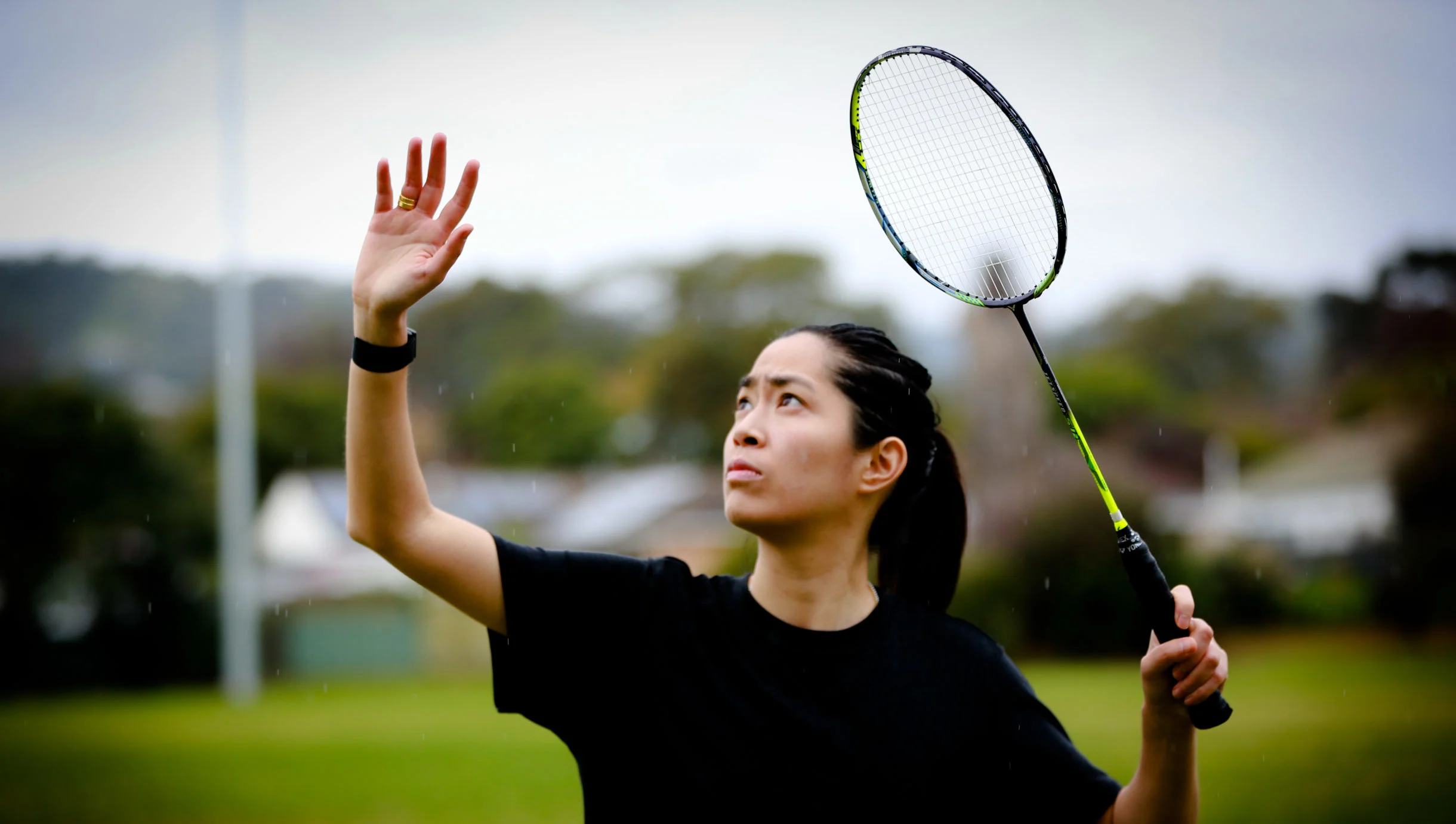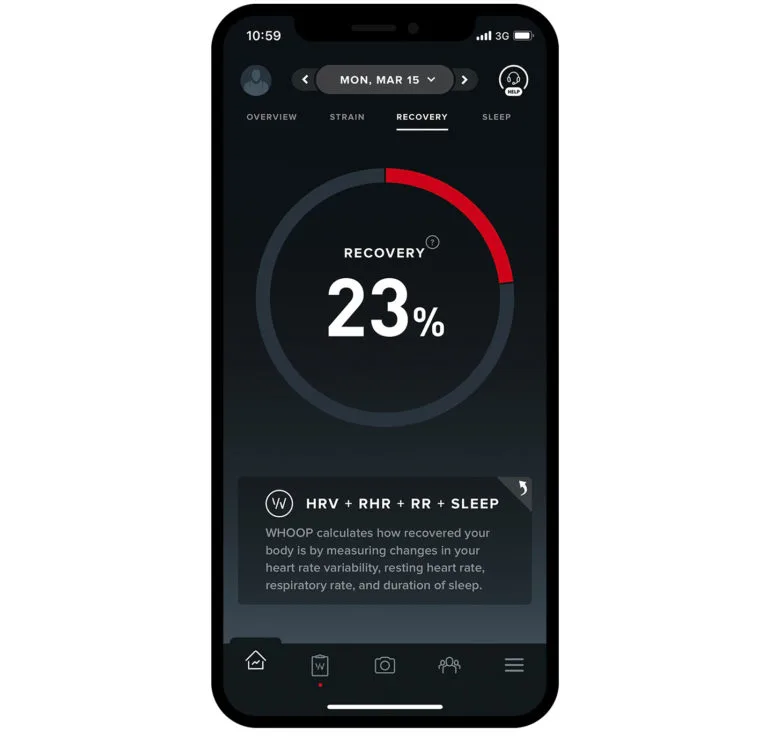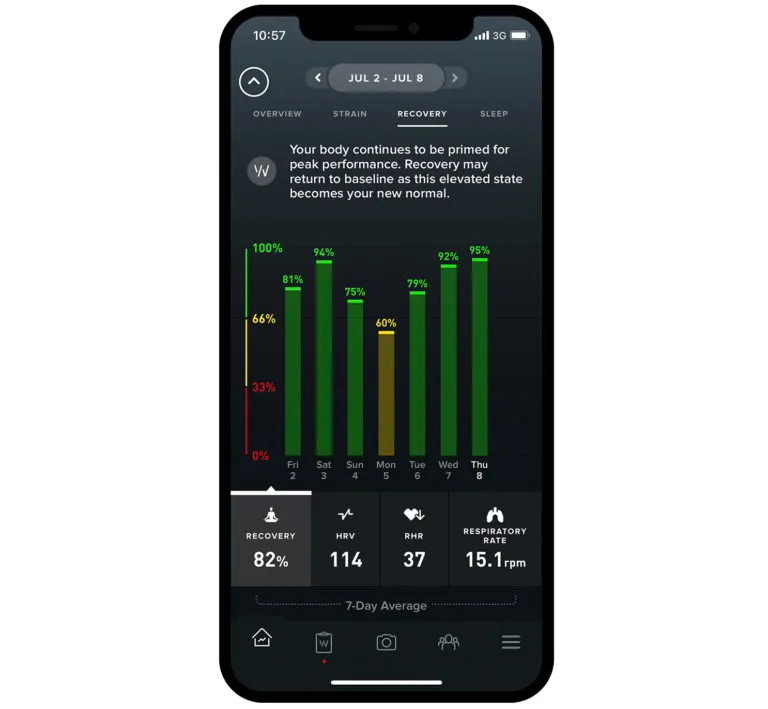Topics
- Article
- Member Stories
- Mental Health
How WHOOP Made Me Realize I Needed Self-Care & Self-Love

My name is Leanne Choo. I’m a world-class athlete and I’d like to share my story about how WHOOP has helped change my life.
I’ve had my WHOOP for about eight months now, and I think I’ve only been in the green zone for daily recovery about 30 times. That’s roughly 12% of the time over the past eight months that my body has been adequately recovered. It sounds crazy when I write it down. As a professional athlete and growing up in an Asian family, it was the norm to feel like I was always doing the most, being compared to others, and constantly valuing everything external. Not being kind to myself and continually pushing myself is what got me to the highest level of my sport, including two Olympic Games. Being externally motivated was also a strong driving force. I valued so much of what people thought of me and my achievements that I lost sight of why I was doing the things I was doing and questioned if I even liked doing it. I thought my achievements defined who I was as a person, and my worth was dependent on what I’ve accomplished and the external validation I receive.
The Need for Self-Care and Self-Love
I have realized I didn’t think much of myself--I thought my achievements were just normal and something I should be doing because I expected nothing less from myself. The penny dropped and it recently dawned on me that whenever I meet another Olympic athlete I think “Wow you are amazing, what an achievement!” and I get a little star struck. Why don’t I tell myself that? It’s because there was no such thing as enough. Being hard on myself became the norm in order to avoid complacency. The line of thought went something like this: If I accept who I am, where I am, and what I have, then I will become unproductive and lazy. It all came down to the misconception that acceptance equals contentment, which also equals laziness. This carried out into my normal life post retirement, and subconsciously caused a cycle of anxiety and tension. At some point, I came across the idea and practice of self-love and acceptance. It finally occurred to me that the notion of “not doing or being enough” was an endless hamster wheel I put myself on, and the only way to get off was to start being nicer and kinder to myself--talk to myself as if I was talking to a friend.
Quantifying Recovery
I bought a WHOOP to keep me accountable after retiring from professional sports. Working out is something that is second nature to me and a huge part of my life. I work out almost every day and it occurred to me that lately it had turned into a bit of a chore. I confused not wanting to work out with not being disciplined. The more I exercised and failed to give myself time to recover, the worse my workouts became. I was constantly in the red and yellow zones. When I opened my WHOOP app in the morning and my recovery was green, my first reaction was, “Well that sucks, I’m in the green and now this means I have to work out.” How backwards is that! On the other hand, when I saw myself in the red and the yellow I would think “Yes! I have an excuse if I have a bad workout.” That thought process alone should be an obvious red flag and a clear sign to give my mind and body some rest (which is exceedingly difficult for me). My WHOOP has really helped me recognize that I was burning out.

Constant red WHOOP recoveries made Leanne realize she was overtraining and burning herself out.
Changing the Narrative
The impact of simply changing the narrative in my mind has really surprised me. It’s been so liberating! Telling myself things like “I am allowed to feel good. I am allowed to be in the green zone when I recover and just be happy about it. I am allowed to not work out if I don’t want to.” Lately I’ve started only working out when I actually feel like it. It has not only benefited my performance, but also made working out infinitely more enjoyable. I have also tried to be kinder to myself while practicing self-compassion and self-love (two very foreign concepts to me). Strategies such as self-talk, reflecting, being present in the moment, and writing down my thoughts have all been extremely helpful and had a positive effect on many different aspects of my life. You can see it in my WHOOP recovery, including a pair of recent 3-day green streaks! I’ve never had that before.

"Self-love" and only working out when she actually wants to have positively impacted Leanne's daily WHOOP recoveries.
Life Beyond Sports
I have now retired as a professional athlete, am back in university studying Neuroscience, and have moved on to coaching. The space of mental health in sports is only growing and getting bigger, and I want to help my athletes understand that what they are doing is their choice--what they are learning is an open conversation between us. Authoritative-type coaching is very last century (because we coach the way we were coached), and we are starting to see a shift away from this as athletes become more comfortable talking about how they feel. I’ve found the best way to really connect and get the most out of my athletes is by understanding and communicating with them, which builds intrinsic motivation. There is also life after sports, something not talked about much with a lack of resources set up to help athletes transition through this period. Many athletes feel like they lose their identity when they stop competing, which can lead to high anxiety and depression. We need to help and start asking our athletes what they enjoy doing outside of sports. I wanted to share my story because I know a lot of high-achieving athletes go through this, especially Asian-Americans/Australians who don’t believe in self-love and self-care because culturally it’s not discussed or demonstrated to us. My aim is to further the mental health conversation and dialogue in pro sports--it’s OK not to be OK. I want people to recognize that getting help is a sign of strength and not weakness. Most importantly, there’s nothing wrong with being kind to yourself. Photo Credit: Kevin Khaw Photography